
Switzerland: Why Strategic Hiring is Key in HR
Over the past three months, our recruitment teams in Switzerland saw positive signs of economic recovery in Switzerland, with job vacancies on the rise. Our Swiss Country Director, John Byrne, dives into the details...
Confidence heading into the New Year marked a positive start to 2025. For instance, we’ve seen several major transformation projects move forward and a strong commitment to hiring key strategic roles. Obviously, the tariff challenges in April do add some uncertainty, but reflecting on the past three months, the market has responded well in 2025.
Key Trends
Human Resources is becoming increasingly strategic as digitalization and AI take on much of the groundwork in data gathering and administration. As a result, businesses are shifting HR away from operational tasks and focusing more on business partnering and delivering actionable analytical insights, even at junior levels. Professionals with such skills remain in high demand.
The high volume of vacancies mirrors trends seen post-pandemic. The October to December period indicated a market low, with hiring activity picking up in the New Year.
We’ve also observed a growing demand for office-based flexibility. This discussion will remain a strong talking point throughout 2025 and beyond, as enforcing strict return-to-office policies may make it difficult to attract top talent, especially in tougher markets.
Stay Ahead
The coming quarter should see more companies making decisive recruitment moves. Many organizations are looking to commit to senior hires before the summer, presenting opportunities for professionals seeking leadership roles.
Where hundreds of applicants may be pitching for the same role, a strategic approach is key for job seekers. Leveraging your network can open doors and create opportunities beyond standard applications.
If you’d like to discuss hiring trends or explore new opportunities, please don’t hesitate to contact me at [email protected] or our Swiss recruitment team at +41 41 508 7007

Dutch Finance Recruitment Market Update: Demand Strong for Skilled Finance Professionals
EMEA Recruitment's Netherlands Country Director, Hannah Mallia, reflects on the Dutch Finance & Accounting recruitment market in Q1 and the roles in demand across the region.
The past quarter has seen demand remain strong for skilled Finance professionals in traditional roles like Controlling and Reporting, despite a long-term focus on professionals with technical skillsets.
While technology remains a key driver in Finance & Accountancy roles, demand for Financial Controlling and Reporting professionals has surged since the start of the year, demonstrating the importance of these skillsets in maintaining business operations.
The predicted demand for professionals with technical skillsets – particularly SAP S/4HANA, NetSuite, Power BI, and blockchain – continued in quarter one, and we expect this trend to persist into the longer term. However, the need for Financial Controlling and Reporting talent, especially in manufacturing, real estate, and technology, has rocketed. Businesses still require skilled professionals who can interpret and manage data effectively.
Interim hiring has also remained strong, with projects spanning ERP implementations, centralization, outsourcing, and IPO preparation. Industries actively hiring interim professionals include real estate, FMCG, pharma, tech, construction, and oil & gas. A mix of project-led work is emerging, leading to both freelance (ZZP) and full-time hires.
A shift back to office-based work continued over the quarter, however candidates are telling us they want to work for companies with a more flexible approach - raising concerns that companies may be missing out on top talent by enforcing stricter policies. However, the benefits of in office collaboration, such as peer-to-peer learning and community, should not be overlooked, particularly for younger generations. Balance is the key to ensure business needs and job seeker preferences are met.
Looking Ahead
As we approach the summer period, businesses are putting teams in place to maintain operations. During these busy hiring cycles, effective planning and ownership are essential to keeping processes smooth and efficient.
At the same time, many professionals are seeking insights into the job market - how active it is, what factors could impact their job search, and reassurance on finding a new role.
We encourage candidates to think long-term when considering career moves. While salary is an important factor, career longevity, development opportunities, and overall job satisfaction should take precedence over short-term financial gains. Making informed decisions based on market realities will lead to more fulfilling career choices.
EMEA Recruitment is here to support our network with valuable insights and expert recruitment guidance. If you’d like to explore new opportunities or discuss hiring trends, please don’t hesitate to contact me at [email protected]

What your Business Needs to Know about Shared Service Center Recruitment
As organizations look to combat changing global economic conditions, Shared Service Centers are continuing to grow in popularity. However, the shared services model can pose significant challenges to attracting and retaining the right talent.
“We’re seeing demand increasing for multi-lingual, tech-savvy, and strategically minded employees,” says Matt Foster, who leads our Global SSC recruitment division.
In fact, in a 2024 survey by Deloitte, 73% of respondents expected to increase investment in shared services over the next year.
Whether you’re in the early stages of setting up your first Shared Service Center or already have a successful shared services model in operation, there are some key considerations organizations should be aware of to ensure a pain-free hiring process and realize those all-important cost savings.
Tackling volume hiring challenges
The growing number of Shared Service Centers in key hubs around the world means that businesses are increasingly competing for the same pool of skilled professionals.
If we look at Deloitte’s research and compare this to our clients’ requirements, we can see that India, Poland, and Mexico are the top three locations with the largest number of Shared Service Centers, followed by the USA. Malaysia is a new entrant to the top five, followed closely by China.
Finding the right mix of technical expertise and soft skills is not easy. When you take into consideration that most organizations are looking to scale headcount at a significant rate, you’ll most likely require extensive candidate shortlists for each role. This is where we see organizations fail to meet their hiring targets and costs increase, as roles are left unfilled.
Partnering with a Shared Service recruitment specialist speeds up the process and ensures you have the time to focus on strategic challenges. Most organizations we speak to don’t have the bandwidth to treat their Shared Services recruitment as a dedicated project, or they have tried and failed to make it work. The key success factor is having access to a recruitment team that can commit to sourcing the volume of candidates needed to fill your roles.
“At EMEA Recruitment, we’ve recognized the global war for talent impacting Shared Service Centers,” explains Matt Foster, Associate Director in our Global SSC division. “We have a dedicated team focused on these volume recruitment projects, who have existing networks of skilled professionals ready for businesses to tap into, speeding up the set-up and success of your SSC.”
Working with multiple agencies may not increase your reach
Shared Service Centers will often go through key restructuring periods, such as a digital transformation or process improvements. In these situations, you may have an immediate need for large volumes of candidates, as well as evolving skills requirements.
At this point, many organizations reach out to multiple recruitment agencies to increase their outreach.
However, you need a strong relationship with one provider who can truly understand your strategy and the candidate profile required to make the best hiring decisions. Although finding the right skills is important, chemistry is essential. Working with one dedicated partner ensures they understand your people and culture.
At the same time, it can be difficult from an internal perspective to manage multiple agency relationships.
Combat retention issues
High employee turnover impacts service continuity and efficiency in any business, but Shared Service Centers are more frequently affected by the challenges of retaining top talent.
Shared Service Centers are sometimes viewed as cost centers, rather than strategic functions. This can lead some employees to feel disconnected from the organization’s core business and as though their career growth is limited.
If the Shared Service Center is geographically or culturally distanced from the company’s headquarters, teams may also feel isolated from the broader organizational culture.
In some cases, a recruitment agency focuses on filling the most straightforward roles first to make a good impression, but this may cause delays for more tricky vacancies – sometimes, it results in some roles not being filled at all.
“Our approach is to headhunt for every role, so that we find the right fit for the organization,” says Matt. “We find new candidates for each role to ensure we make the best fit for the whole team, which improves retention rates.”
If you’re looking for a Shared Service Center recruitment specialist, get in touch with Matt: [email protected]

4 Ingredients for the Perfect Leadership Cocktail
As the Human Resources Director for HEINEKEN Switzerland, Christoph Hajjar knows a thing or two about cultivating success and high-performing teams – as well as the food and beverage industry. He shares his four ingredients for the perfect leadership cocktail.
“If my leadership style were a cocktail, I would call it the Intention Sour.”
What ingredients go into the perfect leadership cocktail? Christoph explains: “The key ingredients would be: a shot of vision for setting up clear intentions, a splash of empathy to understand and support each other, a little dash of resilience for navigating challenges, and a twist of creativity for fostering innovation.”
“It helps having worked for seven years as a barkeeper!” Christoph tells Keely Straw, the Manager of our HR recruitment division in Switzerland.
Christoph has utilized his vision of developing a diverse team to improve the impact of HR in the business. “By creating an inclusive environment where different perspectives and views are valued and encouraged to be brought forward, team members are motivated to share individual ideas and experiences,” he says.
By working in different countries, Christoph has enhanced his empathy with colleagues. He found the move from Switzerland to Austria an unexpected challenge, learning to adapt his communication style in order to build relationships.
 It was a lesson that also built his resilience: “Some dear colleagues took me aside and provided honest feedback, such as, ‘You may be used to that, but please consider that the clocks tick a bit differently here.’ They also gave me advice on cues and the natural rhythm of a conversation when you want to get to a decision.”
It was a lesson that also built his resilience: “Some dear colleagues took me aside and provided honest feedback, such as, ‘You may be used to that, but please consider that the clocks tick a bit differently here.’ They also gave me advice on cues and the natural rhythm of a conversation when you want to get to a decision.”
Finally, how does Christoph challenge his creativity to drive innovation? His team is currently striking the balance between a data-led approach and maintaining the human touch in HR.
“You can’t have one without the other. You need to have that personal touch, as well as the right dataset, including the knowledge of where to get the data and which pieces to pick out to support an informed decision-making process,” he believes.
In his full interview with Keely, Christoph dives into the role of data and artificial intelligence in HR as a decision-making tool: https://www.emearecruitment.com/executive-interviews/christoph-hajjar-human-resources-director-at-heineken-switzerland/255
Do you agree with Christoph’s ingredients for the perfect leadership cocktail?

2025 Outlook: Trends Shaping the Dutch HR Recruitment Market
In 2024, as the Dutch job market began to recover from geopolitical uncertainties, EMEA Recruitment observed that the emphasis on technology continued to drive job opportunities in Human Resources.
Companies adopted more flexible working arrangements, allowing employees to work remotely and maintain a better work-life balance. Upskilling also stayed crucial, with professionals who adapted to new technologies and industry trends in high demand.
Opportunities and Outlook
Looking ahead, 2025 is set to be an exciting and transformative year. The rise of people analytics is opening up new avenues for HR professionals to leverage data in innovative ways, improving recruitment, performance management, and workforce planning.
There's also a strong focus on employee wellbeing, with companies eager to implement comprehensive programmes that support mental health, work-life balance, and a positive workplace culture. Equity, Diversity & Inclusion (ED&I) initiatives will continue to be a priority, creating demand for HR professionals who can drive these important changes.
As HR technology evolves, there will be more roles for people who can manage automated recruitment tools and HR systems, as well as those who can effectively manage remote teams.
As technology progresses, work practices evolve, and the economic landscape changes, the HR sector will offer plenty of new opportunities for adaptable, innovative professionals. Flexible work arrangements will remain key to helping professionals succeed, while businesses will increasingly look for individuals who value learning, development, and growth.
At EMEA Recruitment, we are excited about the year ahead and eager to support our clients and candidates as they navigate this dynamic landscape.
Our HR recruitment team continues to support clients and candidates in managing an evolving HR profession. If you’d like to discuss your requirements, please don’t hesitate to contact Katie Insley for a confidential discussion: [email protected].

What you Need to Know about Hiring Temporary Workers in 2025
Historically, the Netherlands has been one of the most proactive countries when it comes to monitoring temporary labour and supply chains, to make sure that workers are protected, and functions are in place to ensure compliance. From 1st January 2025, the Dutch government has lifted the enforcement moratorium that has been placed on the Tax administration, and they will be actively reaching out to companies to ask if they are utilizing any self-employed individuals and will be asked to provide evidence to demonstrate that an employer-employee relationship doesn’t exist.
EMEA Recruitment is proud to support our clients with their temporary and interim recruitment needs. Whether you’re looking for a ZZP’er (self-employed professional) to lead a project, or require cover for maternity or sick leave, we work with an active network of workers ready to take on their next assignment.
The rules
This law isn’t new - it has been in place for the last eight years – but the Tax administration has been limited in actions it has been allowed to take, unless it was aware of an obvious misuse. It can now be much more proactive in identifying such misuse.
The rules are simple: A ZZP’er – or freelancer – must work on a specific project, with complete autonomy over their schedule and working patterns. Essentially, they must not work like an employee of the client company.
Both the worker and the client company are responsible for preventing false self-employment and could face enforcement action from the Tax Administration.
Your options
If you’re a company trying to navigate the new landscape, we can help you understand your position and options. EMEA Recruitment’s dedicated team in the Netherlands has assessed the legal and financial requirements of the rules, giving you confidence that you are operating within the guidelines.
It is still possible to hire a freelancer to manage a special project, like a transformation, while temporary workers are the way to go for situations where you need to cover an employee who has left the business quickly or is on leave.
Whatever your requirements, make sure you get the help you need and the right advice by reaching out to Rebecca Spicer, who leads our Interim recruitment division: [email protected]

EMEA podcasts
The EMEA Recruitment podcast welcomes guests from across our network and beyond to share their career journeys, advice, and inspirational stories.




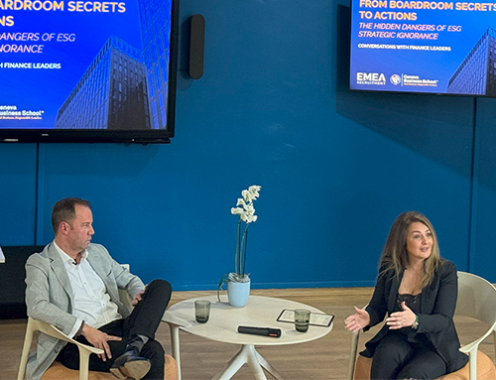
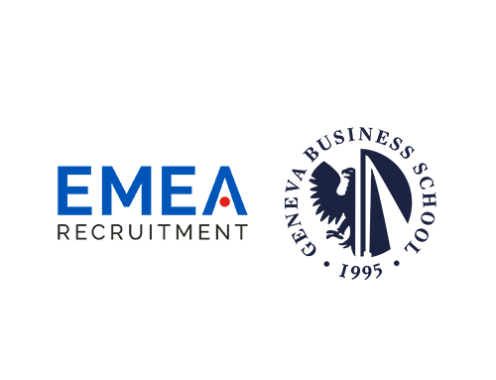

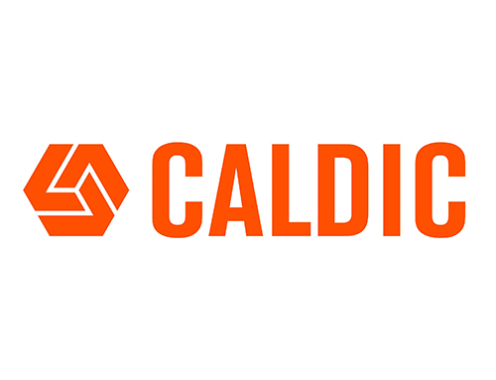





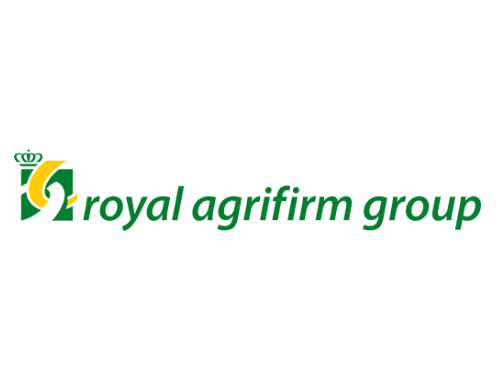

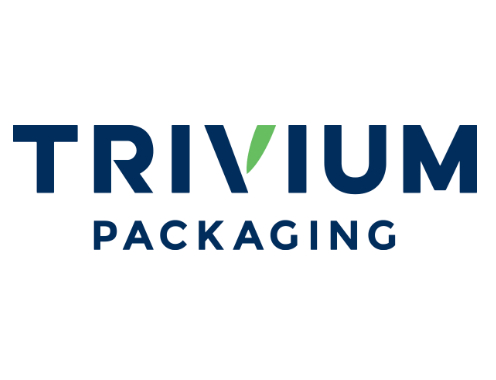


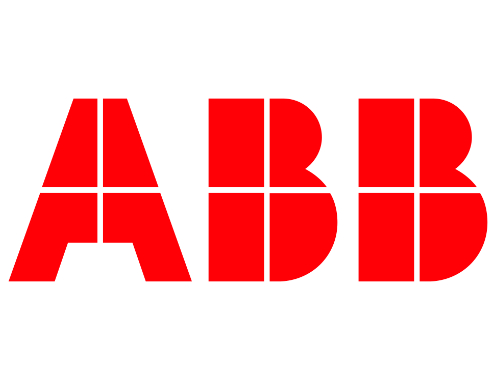

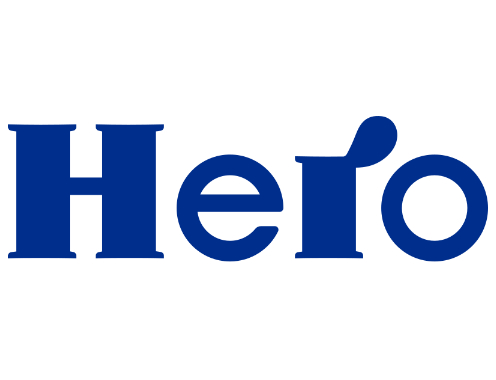


You can also use your social account to sign in. First you need to:
Accept Terms & Conditions And Privacy Policy